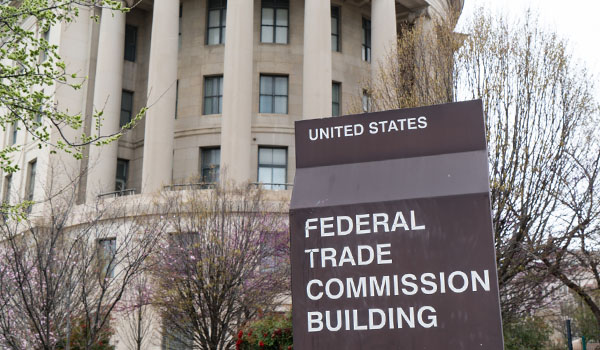02-23-2023 |
No More Non-Competes? What Pending Laws May Mean for Employment in Iowa
By: Danielle Smid

There’s a good chance that if you’re reading this, you’re currently subject to a non-compete provision.
Non-compete provisions or agreements are notorious in that they have a complicated and long history within labor and employment law. For instance, in England circa 1414, an apprentice promised to refrain from practicing his trade for 6 months in the same town where he had been trained and the master tradesman sought to enforce the restriction in the court of common pleas. Non-competes have also long served as a point of debate in economic policy hitting on aspects of entrepreneurship, corporate social responsibility, gender and racial wage equity, This debate has picked up speed in recent years as state legislatures, presidents, and attorneys general have pushed for different versions of reform (with varying degrees of success).
At its most basic, a non-compete provision prohibits a former employee from competing with their former employer, directly or indirectly, for a specific duration and (often) within a specific geographic region. The underlying purpose of this restriction is to curb employees from leaving a job for a competitor (including starting a competing business) and taking valuable information with them. While the employer context for non-competes is most common, non-competes can also be found in business-to-business contracts like franchise, asset purchase, and operating agreements.
Although the concept of the non-compete is relatively simple, the legal landscape is complicated as every state has a slightly different approach to the enforceability of non-competes, with some states currently banning non-competes altogether.
According to the Federal Trade Commission (FTC), approximately 30 million workers in the U.S. are subject to current non-compete restrictions. Additionally, in a 2017 national survey of private employers, 49.4% of responding entities reported “at least some” of their employees were required to enter into a non-compete as a condition of employment.
Specifically in Iowa, non-compete clauses have been generally enforceable so long as the geographic boundaries, duration, and scope of the prohibition is reasonable and there is no violation of a significant public policy.
With so many people subject to the restrictive covenant, but with so much regulatory uncertainty around this common provision, BrownWinick employment and labor attorneys are here to help Iowa employers and businesses be up to speed with the latest reform proposals.
FTC Proposed Rule on Noncompete Clauses
The FTC published a “Notice of Proposed Rulemaking” in January 2023 which would generally ban non-compete clauses and require existing non-competes to be rescinded to-be-determined compliance date. Employers would also need to provide notice to former and current workers with non-competes that the restriction is no longer in effect.
The rule is based on the legal premise that non-competes are an unfair method of competition violating Section 5 of the Federal Trade Commission Act. FTC-referenced data estimates this rule would collectively increase earnings by hundred of billions, save consumers a collective $148 billion in healthcare costs, and expand career opportunities for workers.
Have thoughts? The public is invited to submit comments online through March 20, 2023; to date, over 5,000 public comments have been submitted. Specifically, the FTC is seeking input on the following aspects of the rule:
- Whether a different standard should apply to non-competes that cover senior executives or other highly paid workers.
- Whether the rule should cover non-competes between franchisors and franchisees.
- Whether there are tools other than non-competes that employers can use to protect valuable investments that are sufficient for that purpose.
After the public review period and the final rule is released, there is also a 180-day delay before the proposed rule would take effect. Based on news reports, it is likely the rule will be subject to legal challenges in federal court, which could put a hold on the rule kicking in until after litigation is resolved.
The rule would not expressly ban non-solicitation, non-disparagement, or non-disclosure clauses. However, going forward, employers would be wise to have an employment attorney vet to determine the covenants do not substantively fall under the FTC’s definition of a “non-compete clause.”
State of Iowa: Proposed Legislation Banning Non-Competes
In January, state legislators proposed H.B. 31 which would ban non-competes by Iowa employers unless the employer can establish a “potentially significant impact or consequence . . . attributable to the loss of an employee’s services or work product” or the employer’s trade secrets are at risk. If passed in its current form, the ban would apply to noncompete agreements entered into on or after the law’s effective date (i.e., it wouldn’t be retroactive and require recission of existing non-compete agreements). Interestingly, the bill does expressly allow for employers to require employees agree to non-solicitation restrictions, but it defines solicitation as “wrongly or fraudulently attempting to sell, convey, or distribute employer property, including confidential lists and trade secrets.” As of the time of writing, the bill has not moved through the funnel any further than being introduced and referred to the Labor and Workforce Committee.
Senate: Reintroduced Workforce Mobility Act of 2023
In February a bipartisan group of U.S. Senators reintroduced a bill entitled the “Workforce Mobility Act of 2023 (the Act).” If passed, the Act would render non-compete agreements as having no force or effect and would codify employment non-competes as an unfair trade practice. Under the Act, except in a few limited circumstances, “no person shall enter into, enforce, or attempt to enforce a noncompete agreement with any individual who is employed by, or performs work under contract with, such person with respect to activities of such person in or affecting commerce.” The law also would allow for claims to be brought against employers for violations to seek damages, injunctions, and other relief.
BrownWinick’s Employment and Labor Practice Group stays up to date on state and federal actions related to the latest in laws, policies, and trends pertinent to our clients across a wide range of industries. Our attorneys are available to assist with any questions, concerns, or issues related to non-competes as well as other employment restrictions.

